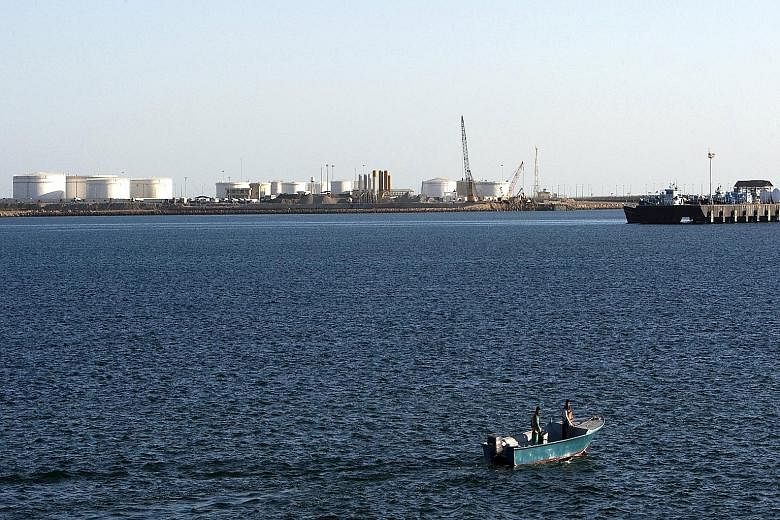Oil prices slid to fresh lows yesterday on fears over Iran's re-emergence in a market that is already reeling from a severe glut of the commodity.
Prices of Brent crude dived below US$28 a barrel - the lowest since 2003 - extending a prolonged rout that began in June 2014.
The latest slide in the price of the benchmark oil came after the United Nations nuclear watchdog said last Saturday that Iran had met the terms of an international agreement to curb its nuclear programme.
Iran's Oil Ministry responded by activating plans to boost exports and lift oil production to 500,000 barrels a day - a move that will continue to weigh down on oil prices, according to analysts.
The International Energy Agency also said it expects Iran to be able to achieve a crude output of 3.6 million barrels a day within six months of the lifting of sanctions.
"The likely increase of Iranian oil production could not have come at a more unfavourable point in time, with the oil market being oversupplied and renewed economic concerns," said Mr Giovanni Staunovo, an analyst at UBS Group in Zurich, in a Bloomberg report.
A chronic global surplus of a few million barrels of crude daily amid weakening demand has dragged oil prices down by more than 75 per cent since mid-2014, and more than a quarter since the start of the year.
Dr Jeff Brown, president of energy consulting firm FGE, told The Straits Times that Iranian oil exports will add about 0.5 per cent to a global supply situation that already sees about 90 million barrels of crude being produced a day. Russia and the United States as well as the Organisation of Petroleum Exporting Countries - which is led by Saudi Arabia and includes Iran - account for the lion's share of the world's oil supplies. The US shipped out its first oil exports on Dec 31, after a 40-year ban on exports was lifted.
"But the oil market is so finely balanced this can make a big difference," Dr Brown added.
"We think that oil prices will remain under pressure for a few months. In fact, it could get worse before it gets better."
He also believes that by the middle of the year, the focus will "shift from the outgoing supply from Iran to a decrease in production from countries such as the US".
He said the Saudis, in an attempt to protect their market share, are deliberately allowing oil prices to fall, which will in turn make oil exploration unprofitable for most firms in the US and other high-cost areas. "But if they see a large enough impact, they may try to bring the price up themselves."
Dr Brown expects oil prices to recover to "well above levels of US$30 a barrel by the end of the year", possibly crossing even US$40.
Saudi Oil Minister Ali al-Naimi said on Sunday he is confident prices will rise. "I am optimistic about the future, the return of stability to the global oil markets, the improvement of prices and the cooperation among the major producing countries. Market forces and the cooperation among producing nations always lead to the restoration of stability. This, however, takes some time."


